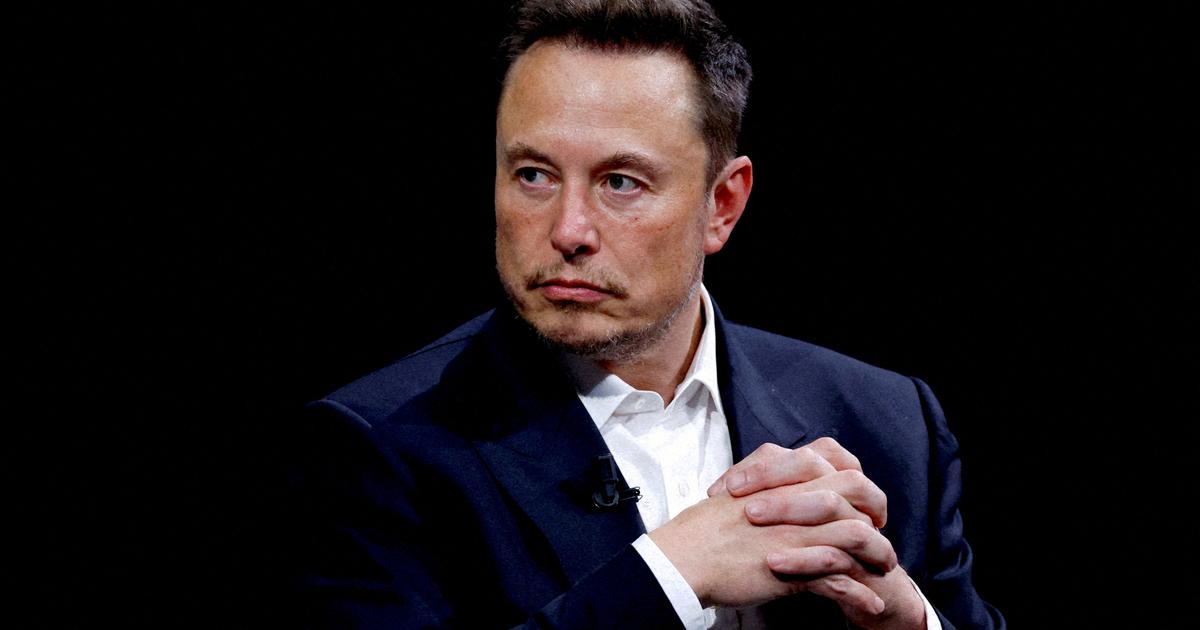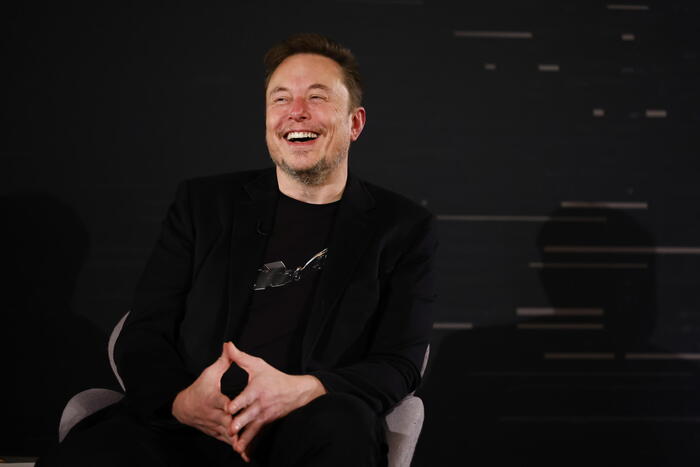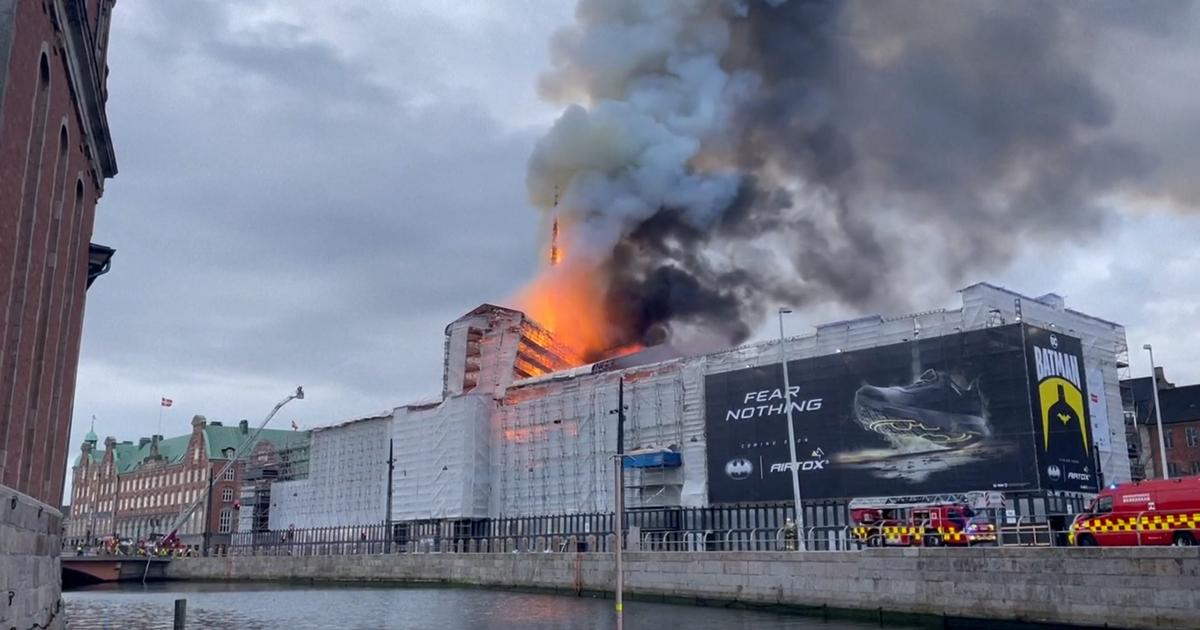Entrepreneur Musk: rocket or suicide mission?
Photo:
DADO RUVIC / REUTERS
Elon Musk is due in court this week.
Not as the new owner of Twitter, who wreaked maximum havoc there in two weeks.
The case in Delaware is about his compensation as Tesla boss, which could reach the astronomical value of 56 billion dollars.
The judge who has already shown in the dispute over the Twitter takeover that she recognizes and treats bullshit as such is presiding over the process: Kathaleen McCormick.
On Wednesday, Musk must convince the sober judge that he is worth billions and that the shareholders' lawsuit is unfounded.
On Twitter itself, Musk won't have to deal with rebellious shareholders.
He is essentially financing the $46.5 billion for the acquisition himself.
A handful of investors are on board with billions of dollars, including Saudi Prince Alwaleed Bin Talal, the Emirate of Qatar and crypto exchange Binance.
Sanjay Patnik of the Brookings Institution think tank considers this a possible national security risk.
Many of the donors have ties to China and there is a risk of foreign interference.
US President Joe Biden has now announced that the government will take a closer look at the holdings.
more on the subject
Elon Musk's management style: "He looks like a villain from a James Bond film" An interview by Franca Quecke
For the time being, however, investors should have other concerns than a veto by the US authorities.
Your money doesn't seem to be invested in a promising way at the moment.
The same applies to the banks.
The man who has recently been semi-publicly arguing about Twitter's possible bankruptcy owes them $13 billion.
"Spectacular!" James Gorman, head of investment bank Morgan Stanley, wrote to Musk when he started buying Twitter in the spring: "You're a rocket," the banker flattered him via text message.
For the fact that the bank got hold of the leading role in the financing consortium, it promised a mega loan that even ultra-rich private customers would not otherwise get: a whopping two billion dollars.
A good six months later, the rocket has become a suicide mission.
According to the Bloomberg finance agency, seven institutions, including Bank of America and Barclays, have already accumulated a paper loss of $500 million.
They usually break up large loans like the one for Twitter into smaller portions and pass them on to investors at a profit.
But the financial markets have lost their appetite for junk bonds in recent months.
According to Bloomberg, some funds have expressed interest in the promissory notes, but with a catch: they want a price discount of 60 percent.
Rating agency Moody's Investors Service downgraded Twitter's credit rating by two notches.
According to the Wall Street Journal, Gorman and his colleagues want to keep the loans on their books for now rather than sell them off at a loss.
The deal "isn't keeping me awake," said Bank of America chief Brian Moynihan.
However, that was before his mega-debtor brought about the downfall of his own company.
The crescendo began with Musk's announcement that Twitter was racking up $4 million in losses every day.
Next he spoke of a "bleak" future.
Without paying subscribers, "Twitter is unlikely to survive the coming economic downturn," Musk warned in his first email to the new hires.
And then: »Bankruptcy cannot be ruled out.« Announced at a virtual works meeting, so that publicity was guaranteed.
"It's not often that a CEO talks about the possibility of their company going bankrupt," says Eric Talley, a professor of corporate law at Columbia Law School.
But the risk is real.
Before the takeover, Twitter had to raise just $51 million a year in interest.
The new loans have increased the burden to around one billion dollars a year.
"Disposable cash flow doesn't even come close to covering that," Talley warns.
more on the subject
Elon Musk fires thousands of employees: The Antisocial NetworkBy Alexander Demling, San Francisco
The fact that this massive financial gap existed was already clear when Musk signed the offer for Twitter in the spring, says the expert.
But back then, the tech industry was flying high – and there was a lot of faith in Musk: “He was considered a genius who would find a way.”
Now the tech euphoria is over, and Musk himself has sowed doubts about Twitter's business model for months.
"Twitter is a much weaker company now than it was then," says Talley.
Musk's "erratic management style" undermines trust.
A tentative chronicle of chaos:
After half of the approximately 7,500 employees were fired, there is growing concern that the platform has enough staff to moderate content and ensure data security.
A number of top managers have given up, including Lea Kissner, who was responsible for data security.
By Musk's own admission, "a number of key advertisers" stopped advertising, causing him "a massive loss of revenue."
Volkswagen and Audi pulled the brakes, as did the food companies General Mills and Mondelez and the pharmaceutical company Pfizer.
Musk then threatened customers with “thermonuclear” consequences.
Last Wednesday he tried to limit the damage in a one-hour, publicly broadcast meeting.
success open.
"Twitter Blue," the option to get the profile verification tick for $8 a month, goes back and forth.
Countless fake accounts, for example as the Pope or George W. Bush, bought the supposed seal of authenticity.
Pharmaceutical company Eli Lilly & Co apologized after a fake account claimed insulin was now free.
Twitter is now talking about a new gray "Official" symbol, but that doesn't seem to have been thought through to the end either.
Meanwhile, Musk is already ventilating big plans like building a new payment system.
The regulator, the Federal Trade Commission (FTC), feels compelled to remember that "no CEO or company is above the law."
The latest developments on Twitter are being followed with great concern, a spokesman said.
more on the subject
Messed Up Twitter Accounts: Real or Not?
How to keep things in perspectiveBy Jörg Breithut
But what's next for Musk, who calls himself "Chief Twit"?
Is bankruptcy really an option?
Company expert Talley considers it conceivable that there is a completely different strategy behind the statement.
It is conceivable that Musk is deliberately making lenders uneasy so that they can get involved in restructuring the debt.
In the end, the multi-billionaire might even be able to buy back loans at a lower price himself.
Cornering the banks in this way would be risky, Talley concedes.
Lenders could respond by claiming breach of contract and demanding faster repayment.
There is also the danger that the bankruptcy scenario will become a self-fulfilling prophecy if business partners, customers and employees flee in fright.
Musk, however, has proven many times in the past that risky strategies are part of his model for success.
"Take note that Twitter is going to do a lot of stupid things in the coming months," he recently announced.
In any case, he has already fulfilled this promise.









